On June 15…
“Everything you see exists together in a delicate balance. As king, you need to understand that balance and respect all the creatures, from the crawling ant to the leaping antelope.”
~James Earl Jones as Mufasa
‘The Lion King’

1215 – King John signed Magna Carta (The Great Charter) at Runnymede, near Windsor, England.
King John had drawn the ire of many English nobility with a series of unpopular military decisions and aggressive taxation. Led by Baron Robert Fitzwalter, the barons and other nobles under John’s rule, rebelled.
In order to avoid civil war, King John was forced to sign Magna Carta, which was written by the barons. The document mostly dealt with the baron’s property rights and the monarch’s accountability to law, neglecting the poorer population.
In subsequent centuries, the document was revised to include other clauses that granted more rights to the general population, including the right of habeas corpus (the right to a trial by judge and jury before being imprisoned) and the right to a speedy trial.
Why is this important to you?
Its importance to American constitutionalism is that many of the prohibitions on governmental action and the freedoms contained within the Bill of Rights (up to 20% of them) were contained in Magna Carta.
The document and the precedent it set served as the foundation for many forms of law, including the American Constitution, and is considered an important milestone in the development of civil rights and the people’s power in a government.
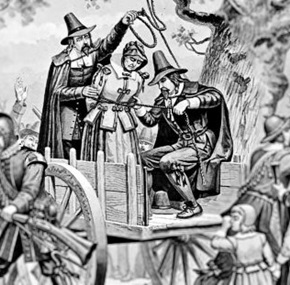
1648 – Margaret Jones was hanged in Boston for witchcraft in the first such execution for the Massachusetts Bay Colony.
John Winthrop, as governor, was among the members of the General Court which tried and convicted Jones.
Winthrop recorded the “evidence” used to convict Jones in his journal. Among her many “crimes” was “she was found to have such a malignant touch, as many persons, men, women, and children, whom she stroked or touched with any affection or displeasure, were taken with deafness, or vomiting, or other violent pains or sickness.“
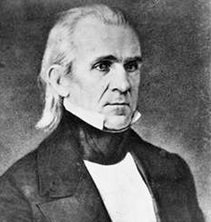
1849 – James Polk, the 11th president of the United States, died after a prolonged bout with cholera at the age of 53.
Polk is often considered the last strong pre-Civil War president, having met during his four years in office every major domestic and foreign policy goal set during his campaign and the transition to his administration.
Polk’s presidency was particularly influential in U.S. foreign policy.
When Mexico rejected the U.S. annexation of Texas, Polk achieved a sweeping victory in the Mexican–American War, which resulted in the cession by Mexico of nearly the whole of what is now the American Southwest.
He threatened war with the United Kingdom over control of the Oregon Country, eventually reaching an agreement in which both nations agreed to partition the region at the 49th parallel.

1864 – Secretary of War Edwin M. Stanton signed an order establishing a military burial ground, which became Arlington National Cemetery.
The cemetery sits on the grounds of Arlington House, which had been the estate of Confederate general Robert E Lee’s wife Mary Anna Custis Lee, a great-granddaughter of Martha Washington.
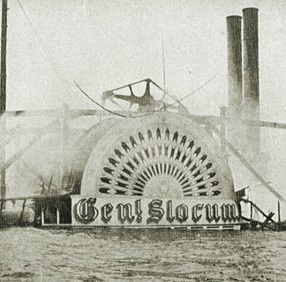
1904 – More than 1,000 people died when fire erupted aboard the steamboat General Slocum in New York City’s East River.
St. Mark’s German Lutheran Church had hired the steamboat for their annual picnic on Long Island. Shortly after the boat with 1,700 passengers left the East 3rd street pier in New York City, a fire started in the Lamp Room in the forward section, possibly caused by a discarded cigarette or match. It was fueled by the straw, oily rags, and lamp oil strewn around the room.
1,021 lives were lost with people burned to death or drowned.
The General Slocum was hardly prepared for any mishap as corrupt inspectors had declared the ship seaworthy despite:
1/ The ship’s six lifeboats were not only tied down but painted to the deck.
2/ Life belts were nailed to the overhead in rusty wiring and were 13 years old.
3/ Fire hoses were rotten and frayed and burst apart when water was run through them.
Steamboat company officials were tried but not convicted, even though proof was obtained that the owners had bribed the inspectors.
Only Captain William Van Schaick served any prison time (3 1/2 years at Sing Sing) before he was pardoned by President Taft in 1912.

1967 – The Dirty Dozen, starring Lee Marvin with a star-studded supporting cast, including John Cassavetes, Charles Bronson, Jim Brown, Robert Ryan, Telly Savalas and Donald Sutherland, premiered in U.S. theaters.
Produced on a budget of $5.4 million, it grossed $45.3 million, and was nominated for four Academy Awards, winning in the category Best Sound Effects.
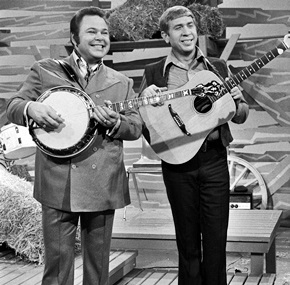
1969 – Hee Haw, hosted by Roy Clark and Buck Owens, premiered on CBS.
Modeled after NBC’s Rowan & Martin’s Laugh-In but with an emphasis on country music and rural humor, the program ran for 26 seasons.
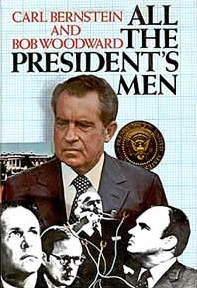
1974 – All The President’s Men, written by Carl Bernstein and Bob Woodward, was published
The book chronicled the investigative reporting of Woodward and Bernstein from Woodward’s initial report on the Watergate break-in for The Washington Post through the resignations of H. R. Haldeman and John Ehrlichman, and the revelation of the Nixon tapes by Alexander Butterfield in 1973.
A film adaptation, produced by Robert Redford, starring Redford and Dustin Hoffman as Woodward and Bernstein, respectively, was released in 1976.
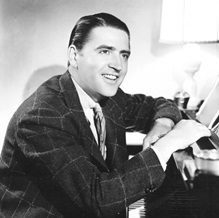
1984 – Meredith Willson, best known for writing the book, music, and lyrics for the hit Broadway musical The Music Man, died of heart failure at the age of 82.
Three songs from The Music Man have become American standards: Seventy-Six Trombones, Gary, Indiana, and Till There Was You.
Willson also composed an enduring Christmas classic: It’s Beginning to Look A Lot Like Christmas.

1992 – Vice President Dan Quayle erroneously instructed a Trenton, N.J., elementary school student to spell potato as “potatoe” during a spelling bee.
William Figueroa was a student at Rivera Elementary School. On a campaign stop, Quayle visited William’s class and conducted a spelling bee.
The 12-year-old was asked to go to the blackboard and spell the word “potato”.
Which he did. Correctly.
Quayle, however, didn’t see it that way. He glanced at a cue card, which spelled the word “potatoe”.
At the Vice President’s urging, William added the erroneous e.
“I knew he was wrong, really,” the boy explained later. “He’s the Vice President and I couldn’t argue with him with all the people there.”

1994 – The Lion King premiered on a limited basis, playing in only two theaters, El Capitan Theater in Los Angeles and Radio City Music Hall in New York City.
The world wide release followed one week later and the reception exceeded even the wildest expectations.
The film featured cutting-edge animation from Disney, five new songs by Elton John and Oscar-winning lyricist Tim Rice, and the voices of Jeremy Irons, Matthew Broderick, James Earl Jones, Jonathan Taylor, Cheech Marin and Robert Guillaume.
The film would go on to win two Academy Awards; Best Original Score (Hans Zimmer) and Best Original Song with Can You Feel the Love Tonight.
The Lion King has earned $423 million in North America and $546 million in other territories for a worldwide total of $969 million.
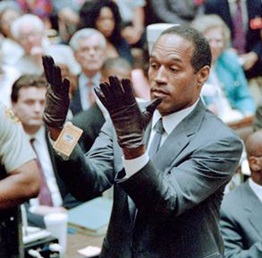
1995 – During his murder trial, O.J. Simpson struggled to put on a pair of gloves that prosecutors said were worn by the killer of Simpson’s ex-wife, Nicole, and her friend, Ronald Goldman.
Deputy district attorney Christopher Darden asked Simpson to try on the gloves thought to be used in the murder, and it became one of the most memorable moments of the nine-month trial.
When the gloves did not appear to fit that day in the courtroom, it had a powerful influence on public opinion.
Johnnie Cochran, one of Simpson’s defense attorneys, came up with his now infamous courtroom argument … “If it doesn’t fit, you must acquit.”

1996 – Ella Fitzgerald, the most celebrated jazz singer of her generation, died at the age of 79.
She had been suffering from diabetes and its eyesight and circulatory system complications for many years. In 1993, both of her legs were amputated below the knees.

2015 – Businessman Donald J. Trump formally began his presidential campaign by riding down the escalator at Trump Tower in New York City before delivering his announcement to run.
In his speech, Trump drew attention to domestic issues such as illegal immigration, offshoring of American jobs, the U.S. national debt, and Islamic terrorism.
The campaign slogan was announced as “Make America Great Again.”
Politico magazine dismissed the announcement as folly and predicted Trump’s early polling numbers were a mirage.
“Trump’s poll numbers, which will probably remain in respectable double-digits through the fall, will almost certainly tumble when primary crunch time comes. Practicality will ultimately trump, well, Trump.”
Another leading pollster agreed with the magazine.
Patrick Murray, the director of the Monmouth University Polling Institute, said, “At the end of the day, it’s quite possible that Donald Trump will get 11 percent in New Hampshire, but that might be his cap.”
In the NH first in the nation primary eight months later, Trump won 35.2% of the vote and proceeded to cruise to the Republican nomination.
Compiled by Ray Lemire ©2019 RayLemire.com / Streamingoldies.com. All Rights Reserved.